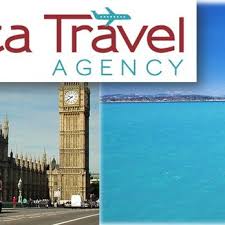The Importance of Business Trips
Business trips play a crucial role in the success and growth of companies worldwide. These trips are not just about traveling to different locations; they are essential for building relationships, expanding networks, and exploring new business opportunities.
Networking Opportunities
One of the key benefits of business trips is the opportunity to network with industry professionals, potential clients, and partners. Face-to-face interactions during meetings, conferences, and events can lead to valuable connections that might not be possible through virtual communication.
Business Expansion
Business trips provide a platform for companies to explore new markets, establish partnerships, and expand their operations globally. Visiting new locations allows businesses to gain insights into local cultures, regulations, and market trends, enabling them to make informed decisions about their expansion strategies.
Relationship Building
Building strong relationships with clients, partners, and colleagues is essential for long-term business success. Face-to-face meetings during business trips help strengthen existing relationships and foster trust and collaboration among stakeholders.
Knowledge Sharing
Business trips offer opportunities for knowledge sharing and learning from industry experts. Attending conferences, seminars, and workshops during these trips allows professionals to stay updated on the latest trends, technologies, and best practices in their field.
Conclusion
In conclusion, business trips are more than just travel; they are strategic investments that can drive growth, innovation, and success for companies. By embracing the benefits of business travel and leveraging the opportunities it offers, organizations can stay competitive in today’s dynamic business landscape.
Maximize Productivity on Your Business Trip: 6 Essential Tips
- Plan your itinerary in advance to maximize productivity.
- Pack light and efficiently to avoid unnecessary baggage fees.
- Stay organized by keeping all important documents in one place.
- Research local customs and business etiquette to make a good impression.
- Keep track of expenses for reimbursement purposes.
- Stay connected with colleagues and clients through regular communication.
Plan your itinerary in advance to maximize productivity.
Planning your itinerary in advance is a crucial tip for maximizing productivity during a business trip. By mapping out your schedule ahead of time, you can ensure that your time is used efficiently and effectively. This allows you to prioritize important meetings, allocate time for networking opportunities, and avoid last-minute scheduling conflicts. A well-planned itinerary not only helps you stay organized but also enables you to make the most of your trip by focusing on key objectives and tasks.
Pack light and efficiently to avoid unnecessary baggage fees.
When embarking on a business trip, it is crucial to pack light and efficiently to avoid unnecessary baggage fees. By packing only the essentials and opting for versatile clothing items that can be mixed and matched, travelers can streamline their luggage and minimize the risk of incurring extra costs at the airport. Packing strategically not only saves money but also ensures convenience and ease during travel, allowing professionals to focus on their business objectives without the burden of excessive baggage.
Stay organized by keeping all important documents in one place.
Staying organized during a business trip is essential for a smooth and efficient experience. One helpful tip is to keep all important documents, such as passports, tickets, itineraries, and contact information, in one designated place. By having all necessary paperwork easily accessible, you can avoid last-minute stress and ensure that you have everything you need at your fingertips throughout your journey. This simple practice can help streamline your travel process and allow you to focus on the purpose of your trip without worrying about misplaced or forgotten documents.
Research local customs and business etiquette to make a good impression.
Before embarking on a business trip, it is essential to research local customs and business etiquette to ensure a positive and respectful interaction with potential partners or clients. Understanding and adhering to cultural norms can make a significant difference in making a good impression and building strong relationships. From greetings to gift-giving practices, being aware of these nuances demonstrates professionalism, cultural sensitivity, and a genuine interest in engaging with the local community. By taking the time to learn about and respect local customs, business travelers can pave the way for successful collaborations and meaningful connections during their trip.
Keep track of expenses for reimbursement purposes.
It is essential to keep track of all expenses incurred during a business trip for reimbursement purposes. By meticulously documenting expenditures such as transportation, accommodation, meals, and other related costs, employees can ensure accurate reimbursement from their company. Maintaining organized records not only facilitates the reimbursement process but also demonstrates transparency and accountability in managing company funds. Effective expense tracking contributes to financial efficiency and compliance with company policies, ultimately benefiting both the employee and the organization.
Stay connected with colleagues and clients through regular communication.
Staying connected with colleagues and clients through regular communication is essential during a business trip. By maintaining open lines of communication, you can keep all stakeholders informed about your progress, address any issues promptly, and ensure that everyone is on the same page. Whether it’s through emails, phone calls, or virtual meetings, staying in touch demonstrates professionalism, builds trust, and fosters strong relationships that are key to successful business endeavors.






